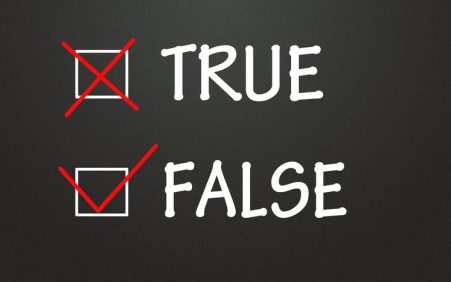
“Breast is best.”
Except that it’s not.
How did an ideological claim, never proven with scientific evidence, get accepted as a “fact”?
Nissen and colleagues explain the canonization of false facts:
Science is a process of collective knowledge creation in which researchers use experimental, theoretical and observational approaches to develop a naturalistic understanding of the world. In the development of a scientific field, certain claims stand out as both significant and stable in the face of further experimentation. Once a claim reaches this stage of widespread acceptance as true, it has transitioned from claim to fact. This transition, which we call canonization, is often indicated by some or all of the following: a canonized fact can be taken for granted rather than treated as an open hypothesis in the subsequent primary literature; tests that do no more than to confirm previously canonized facts are seldom considered publication-worthy; and canonized facts begin to appear in review papers and textbooks without the company of alternative hypotheses.
A claim doesn’t have to be true to be canonized.
Consider:
[pullquote align=”right” cite=”” link=”” color=”” class=”” size=””]Breastfeeding professionals are like the surgeons who continued doing radical mastectomies after lumpectomy was shown to produce the same outcome.[/pullquote]
Breast cancer is best treated with radical mastectomy.
Acid causes ulcers.
Episiotomies prevent vaginal tears.
Even though these claims were considered medical “facts” for decades, they were never true. It took years of near heroic work (often while enduring widespread scorn) for doubters to overturn conventional wisdom.
It’s only a matter of time before “breast is best” is added to the list.
The process is under way as we speak as hospitals grapple with tens of thousands of newborn readmissions each year at the cost of hundreds of millions of dollars. The process is furthered by the growing body of papers detailing harms of aggressive breastfeeding promotion including in hospital suffocation of newborns in mothers’ hospital beds as well as skull-fracturing falls from those beds in the wake of closing well baby nurseries. But what will almost certainly seal the de-canonization of “breast is best” is that almost none of the predicted benefits of breastfeeding have come to pass. With the exception of premature infants, breastfeeding has never been shown to save lives, prevent severe disease, or reduce healthcare costs.
If the claims were never true, why was it so hard to convince the believers that they were never true?
White hat bias
The current era of breastfeeding promotion reflected disgust with Nestle’s unethical marketing of formula in Africa. Early breastfeeding promotion efforts in the 1980’s did NOT assert that breast was best, merely that breast was better than formula prepared with contaminated water. The International Code of Marketing of Breastmilk Substitutes was designed to restrain and punish formula companies.
In a very real sense, breastfeeding promotion had its origins in an ideologically motivated boycott of formula manufacturers. That anti-corporatist zeal persists to this day but the demonization of formula manufacturers has transmuted into the demonization of formula itself.
The professionalization of breastfeeding support
In the mid-1980’s, La Leche League realized that it could monetize the advice and support it had been providing for free for decades. The lactation professional was born. While there is certainly nothing wrong with women earning money to promote breastfeeding, it created a group whose economic health was directly tied to the spread of its promotion efforts. It is hardly surprising then that the moralization of breastfeeding followed swiftly upon its monetization. Although breastfeeding professionals have been scathing in their criticism of allowing formula companies to market within hospitals, they have not ended marketing efforts, merely replaced them with their own product: breastfeeding.
Publication bias
As Nissen et al. explain:
Publication bias arises when the probability that a scientific study is published is not independent of its results…
Publication bias is pervasive. Authors have systematic biases regarding which results they consider worth writing up… Journals similarly have biases about which results are worth publishing.
What kinds of results are most valued? Findings of statistically significant differences between groups or treatments tend to be viewed as more worthy of submission and publication than those of non-significant differences. Correlations between variables are often considered more interesting than the absence of correlations. Tests that reject null hypotheses are commonly seen as more noteworthy than tests that fail to do so. Results that are interesting in any of these ways can be described as “positive”.
Publication bias in breastfeeding research means that it is extremely difficult to publish a study that doesn’t conclude breast is best. This bias is exacerbated by the existence of journals whose purpose is to promote breastfeeding. Those journals — the primary sources for scientific information about breastfeeding — rarely publish any studies that dare to question the canonization of false facts about breastfeeding.
Sloppy research methods
As I have noted many times, most breastfeeding research is appallingly bad. It is weak, conflicting and riddled with confounding variables. The central claims are based on the massive extrapolation of small studies as well as unvalidated mathematical models, both of which assume causation whenever correlation is observed. Almost none of it has been consistently reproduced by follow up investigations.
That doesn’t mean that breastfeeding professionals are lying. They truly believe that breast is best, just like generations of surgeons who believed radical mastectomy is best and like generations of internists who believed that acid caused ulcers. There is no shame in canonizing facts that turn out to be false. The only shame is refusing to consider the possibility that you are wrong when new data don’t confirm your beliefs.
That’s where breastfeeding professionals are now. They are like those surgeons who continued doing radical mastectomies after lumpectomy was shown to produce the same outcome. They may believe in their own righteousness but the result is unnecessary suffering.
“Breast is best” is a false fact. Let’s stop pretending otherwise.

